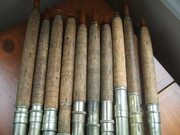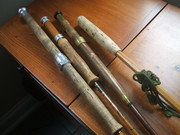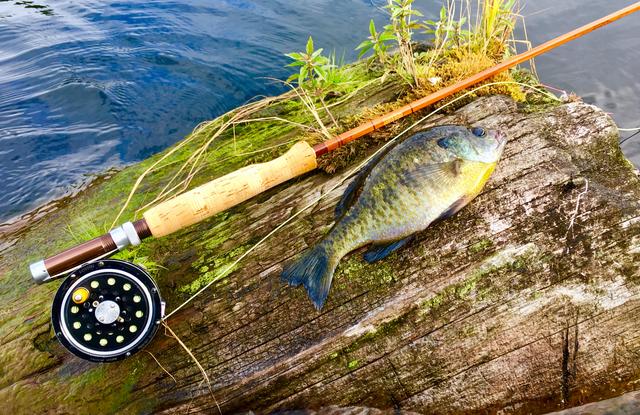Visit any museum and it will be seen how many natural materials can last( relatively unchanged) for hundreds or even thousands of years, if moisture, light,rot or fire are avoided.
The original question was asking how to avoid cork drying out, as if it were a commonplace occurrence/ problem in rod making.
In our part of the world (Southern Ontario) we have the Canadian Cane rod gathering every two years, which I have been to most of, over the past 20+ years. We give presentations to each other, show and tell and discuss every aspect under the rod-making sun. Not once, to my memory, has the subject of 'drying -up -cork -as -an issue -to -rod -making' been mentioned.
This is not to say that it may not occur, merely that there are more important things to fret over.
By all means cover/ finish your cork with anything if you feel so inclined; some varnish their cork handles as they like to keep that 'new look'. Similarly others prefer to keep the plastic shrink wrap on as they think it will protect the cork, until the water creeps under creating possible issues.
I watched a fellow on You Tube yesterday (two and a half minutes I won't get back..) slathering over his 'nice cork handle' (production, full of filler) some proprietary potion to protect it. OK, if it makes the owner feel better.
Gnome, for some reason your posts reveal a certain unease, manifest in a profound dissatisfaction with bamboo rods generally, as most of us enjoy them. No aspect escapes the often scathing criticism at one time or another - now it is the humble cork handle's turn. Respectfully, I do not accept your views on the subject.
A few years ago I was given quite a few well used, some battered, tired and broken, rods from an exclusive fishing lodge - Hardy.s , Leonards, Paynes, Orvis, F E Thomas and more. Most were in their original bags complete with repair tags from the 1960's. One or two Leonard salmon rods were engraved with dates back to 1914. Some rods were unusable so I stripped them for parts, some discarded altogether.
All of the handles of the Leonards are here pictured, most of the cork still looks pretty good to me. The other photo features an early Hardy greenheart rod handle with a cork sheet covered grip, also still in very good condition, quite probably from the late 1800's. There is a Hardy Wye from the early 60's, plus a little Farlow's Aerial 1950's model and to complete the 'grab bag' is the cork handle of my own cane wading stick which has faithfully lain in the water beside me for many years without any ill effect, to my eye anyway.
Malcolm







